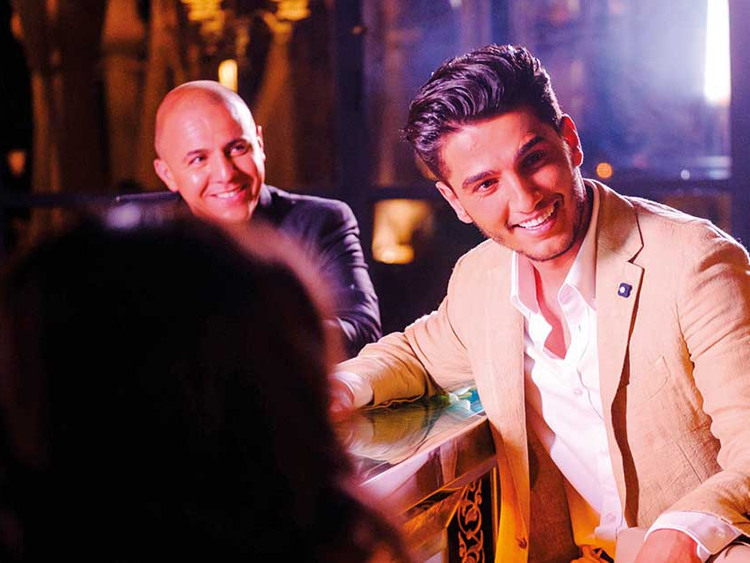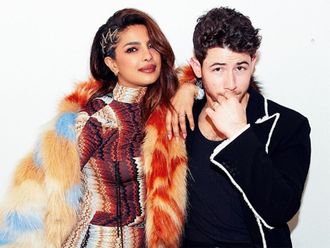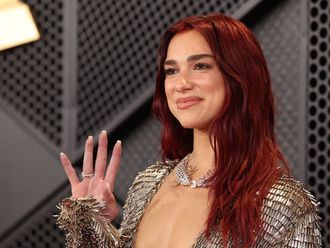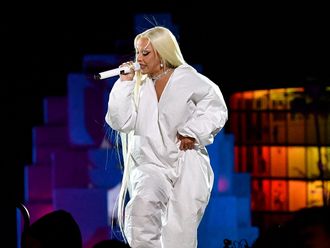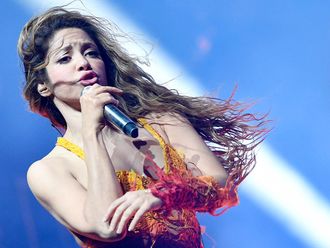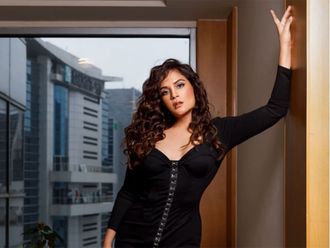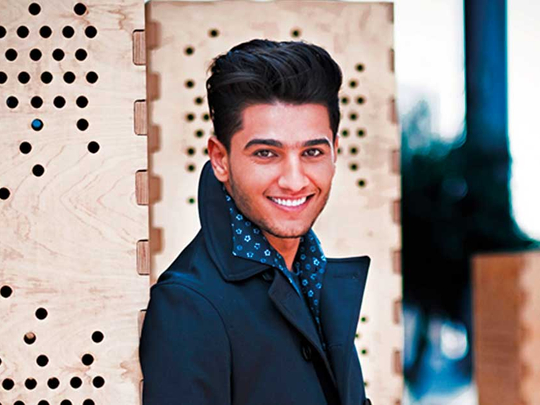
Palestinian singer Mohammad Assaf would never admit this — he’s far too humble — but his latest album, Ma Wahashnak, serves as a blaring warning call to other male solo artists in the business: beware, men... a viciously versatile pop star is amidst your ranks.
Since the debut of his self-titled album three years ago, Assaf has gone from being a dazed and confused pop star to a cocksure master of his craft.
Thankfully, some things never change: his blisteringly bright smile, his disarming honesty and his modest approach to a colossal avalanche of ongoing success.
“Your parents will always look at you as a small child,” Assaf told Gulf News tabloid! in a sit-down interview on Sunday evening.
“Just this morning, my mum sent me a message. She always recites du’a, the same prayers I grew up on. She understands my situation and life. She says, ‘Did you see this and that comment on social media?’ She sends me my own news on WhatsApp. She tells me, ‘Mama, when this happens, try to say this, or do that,’” he said, laughing.
The 27-year-old lists his mum, his dad, and his craft as the three things he can’t live without; they’re what keep him grounded.
But Assaf went into his latest album a fighter.
He collaborated with everyone from French-Algerian singer Faudel to Gente De Zona, the Cuban duo behind the hit music video La Gozadera.
He also recorded a song with Lebanese-Canadian R’n’B singer Massari, he revealed.
“I was almost going to put it on my album — I was going in that duet album direction,” said Assaf. “It’s a single that I think they’ll release on Massari’s album.”
Days after the release of a music video for his single Rani, nearing two million hits on YouTube, he told tabloid! just how far his horizons have expanded since his 2013 Arab Idol win.
Ma Wahashnak’ is Assaf’s second album.
We last met in 2014. How much has changed since the last time we spoke?
I’m very happy. On a personal level, when someone is introduced to different cultures and different fields, they become more open-minded. Your acceptance of others, despite their differences, is a really good thing. There were days I was happy, there were days I was unhappy. That’s the nature of life, and the nature of my work — it’s not easy, but I’ve reached a point of stability within myself. I’m comfortable with what I’m doing, I’m convinced with my message.
Did you play the album to your family before you released it?
Of course. I’ve had some of the songs for two and a half years. I like to look at the person while I’m playing them a song, because a lot of people like to flatter you [laughs]. I don’t like excessive flattery. I really fear the person who will overly flatter me.
There hasn’t been too much criticism of you, has there?
I’m calm by nature. I always take things in a positive way — even if I’m criticised. On social media, you can’t control the kind of comments that come in. It’s more than normal for that to happen. My friends get irritated, but I take things with a grain of salt. In the past four, five years, I haven’t created problems with anyone.
Last time, you said you’d have no problem leaving the entertainment industry. Has that changed?
I’ll say it again, and I’ll say it until the last day of my life: if I feel like entertainment takes me away from my principles, my morals and my values, and if in the future, it affects my personal life inside my house, I have no issue giving up on it and staying at home.
On Ma Wahashnak, there are only ten songs, but they’re all so different. Was that deliberate?
I don’t like performing in a single genre — I’m against it completely. If you can sing more than one genre, and you can control your voice and feeling and do the song justice, I’m all for it. Some people like pop music or romantic music or classical music. I like to be versatile, and I’m never going to change that.
How was it to sing Rani, the song you did with Faudel?
I felt like I accomplished something massive. When the idea was presented to me at first, I didn’t like it at all. The melody pulled me in. I don’t understand Algerian and I don’t speak French, so I wrote the French parts phonetically in Arabic and read it from the paper. Even the sound engineer went crazy [with how well it went]. Rani is one of my favourite songs on the album.
What about the song you did with Gente De Zona?
I have a demo of it, done in a totally different way. I’m thinking of releasing it. [Assaf looks at his manager and laughs.] I have a copy of it, the first demo, it was a more romantic take. There wasn’t that loud music with Gente De Zona and the Western rhythms. When Gente De Zona agreed to do it, I was flying from joy. Like, what? Me and Gente De Zona? That’s huge.
You have a pure dabke song on the album, too…
Allouma Allouma. In Palestine, Jordan, Lebanon and Syria, they love that song. We’re thinking of recording a music video for it.
Will we get to see you dancing dabke in the video?
Of course. I’m the master of dabke.
You finish the album with a patriotic song, singing a Mahmoud Darwish poem. Tell us about that.
There’s a line, ‘We have on this earth what makes life worth living,’ and if you ask a three-year-old in Palestine about it, he’ll tell you, ‘That’s Mahmoud Darwish.’ I find it to be loved by many people. I took that poem and put a melody to it. There were some in Palestine who didn’t like it, but I respect that.
Is it important for you to have that element on your albums?
Any album of mine, any artistic endeavour, Palestine must be present in it. This is the first time I say this, but not many people paid attention to the cover of the album — in the photo, there’s an area with olive trees. That’s where I came out of: Palestine. It’s always with me, in my heart, mind, and right in front of my eyes.
What do you think of Palestinian filmmaker Hany Abu Assad, who directed The Idol based on your life, making his Hollywood debut soon?
This makes me happier than anything. Last year, the best teacher in the world Hanan Al Hroub from Palestine won the Global Teacher Prize. This is the biggest source of pride for me, even more than what I achieve personally as an artist. Every field is evidence of how alive our people are. The Palestinian youth — the current generation, and the previous, and the future — they give me hope that we can be present in every field, in front of the entire world, and show that we have a right to live, and give hope to our youth that we will establish our Palestinian state.
*Assaf’s album Ma Wahashnak, and the music video for his single Rani, are out now.



